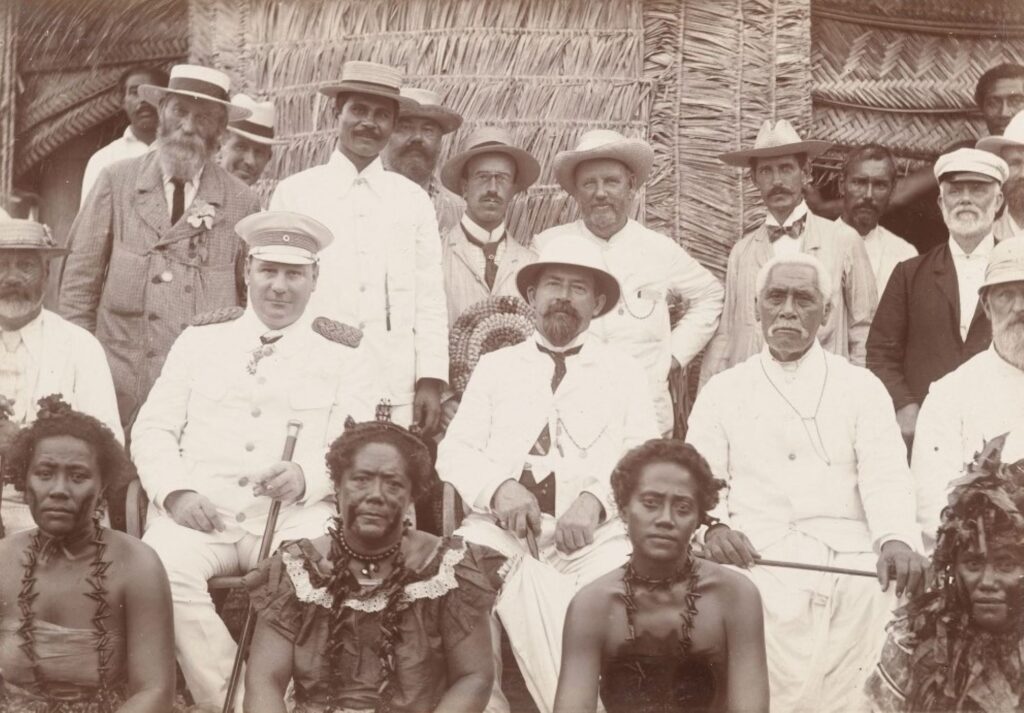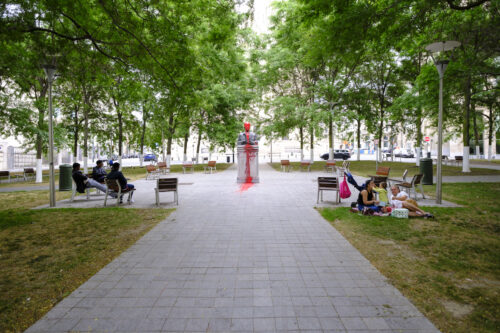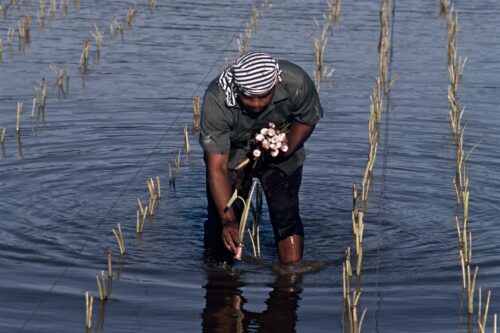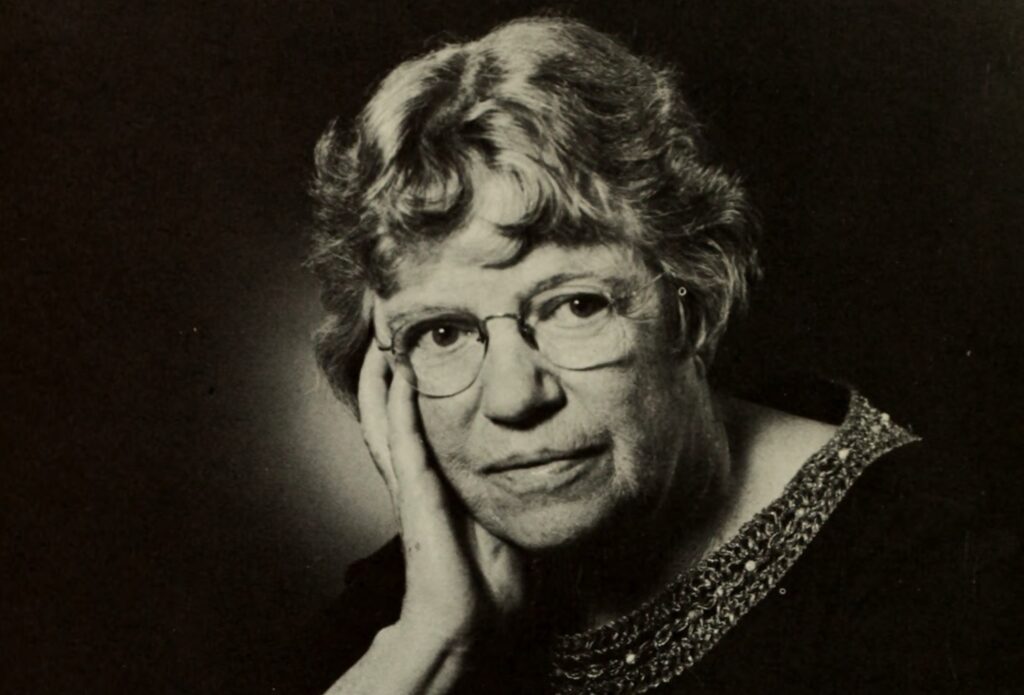Legacies of Colonialism in Samoa

In this unit (to accompany SAPIENS podcast S6E5), students will examine the legacies of the colonial era and how Samoans have striven to overcome them. Students will explore how ideologies shape language and the West’s view on Samoa and its people.
- Explore the legacies of colonialism in Samoa.
- Recognize how derogatory language toward Samoans misshaped the global view of Samoa and the Samoan people.

To Decolonize, We Must End the World as We Know It

How Can Societies Decolonize Conservation?

Por que as andorinhas voam para a zona desmilitarizada coreana?

Para as famílias de entes queridos desaparecidos, as investigações forenses nem sempre trazem uma conclusão

Por dentro do estado de vigilância da Cidade do México
![Uma pessoa usando um vestido branco cuja saia é feita de fitas, cada uma com um nome escrito, inclina-se para trás com os olhos fechados. Ela está na grama, com uma faixa do Black Lives Matter [Vidas Negras Importam] no chão ao seu lado e um círculo de bateristas e espectadores ao redor.](https://www.sapiens.org/app/uploads/2023/07/01_Say-Her-Name-rally-500x337.jpg)
A urgência de vislumbrar um mundo sem polícia

Como uma megabarragem perturba o fluxo da água —e do dinheiro
![Uma pessoa usando um vestido branco cuja saia é feita de fitas, cada uma com um nome escrito, inclina-se para trás com os olhos fechados. Ela está na grama, com uma faixa do Black Lives Matter [Vidas Negras Importam] no chão ao seu lado e um círculo de bateristas e espectadores ao redor.](https://www.sapiens.org/app/uploads/2023/07/01_Say-Her-Name-rally-500x337.jpg)
A urgência de vislumbrar um mundo sem polícia
-
The lack of isolation of individual countries and the practice of creating a world with more fluent borders.
-
A set of words that is spoken and understood by a group of people.
-
Something that was passed on by the people who have lived before us.
- Several countries played a role in the colonization of Samoa: Germany, New Zealand, and the United States. Lead students in considering how each country influenced Samoan culture.
- The legacies of colonial rule in Samoa are complex, as some are viewed negatively while others are seen in a positive light. Explore with students how Western traditions, views, and beliefs infused Samoan culture.
- Investigate how, despite colonization, Samoans have generally been able to preserve their traditions and cultures.
- Language can carry bias and affect a person’s empathy. Colonizing nations often used derogatory language to refer to the people they colonized, inhibiting the ability to understand them. Discuss how words like “savage” and “heathen” resulted in negative and false interpretations of non-Western cultures.
- Language is a powerful tool. It can uplift, and it can harm. Examine the impact language and its usage has had on the global view of Samoans.
-
Cervone, Carmen, Martha Augoustinos, and Anne Maass. 2021. “The Language of Derogation and Hate: Functions, Consequences, and Reappropriation.” Journal of Language and Social Psychology 40 (1): 80–101.
-
McMullin, Dan Taulapapa. 2011. “Fa’afafine Notes: On Tagaloa, Jesus, and Nafanua.” Amerasia Journal 37 (3): 114–131.
-
Sailiata, Kirisitina Gail. 2014. The Samoan Cause: Colonialism, Culture, and the Rule of Law. Ph.D. diss., University of Michigan.
-
Tuia, Tagataese Tuia. 2019. “Globalization, Culture and Education in Samoa.” International Online Journal of Primary Education 8 (1): 51–63.
- Discuss the colonial legacies that are still found in Samoa.
- What, if any, influence did colonialism have on the educational system in Samoa?
- How does language shape our view of other people and ourselves? Include examples to support your points.
- Discuss how derogatory language can be used to devalue other people and how this can impact our society.
- Watch “How Language Shapes the Way We Think” in Additional Resources. Create a list of your thoughts while you are watching this video. How would derogatory language play a role in the topic of this video?
- Can language be used to intentionally manipulate other people’s perceptions of the world? Write an essay arguing your opinion.
- Create an infographic highlighting a selected colonial nation in Samoa.
- Create a list of at least two cultural aspects that were influenced by Germany and New Zealand and that can still be found in Samoa.
-
Podcast: Dayonara Gaoteote’s “Keeping SĀMOA in American Samoa” in American Samoa Politics: Performing SĀMOA
-
Video: Lera Boroditsky’s TEDx Talk “How Language Shapes the Way We Think”
-
Video: UN Story’s “The Shocking Link Between Hate Speech and Genocide”
Nadine Rodriguez, Freedom Learning Group
Unpacking the Mead–Freeman Controversy

